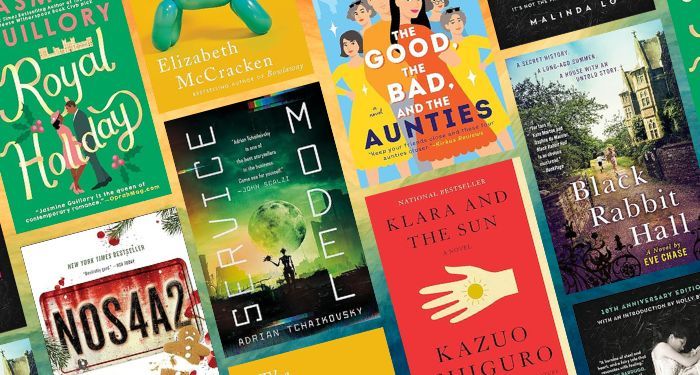Library folks, I’ve got some interesting updates to dive into. Besides the usual batch of censorship lawsuits and legislation updates, there’s a head-scratching analysis of Meta’s legal defense for using copyrighted texts to train its AI model, as well as a couple of unusual reflections on genre.
Book Ban Legislation & Lawsuits
It’s been a busy few weeks for book ban legislation and pending lawsuits. Here are a few key developments to note.
“Twelve students studying in Pentagon schools in the US and around the world are suing the defense secretary, Pete Hegseth, over the book bans he has instigated to remove titles on race and gender from their libraries.” The ACLU of Tennessee has filed a lawsuit to stop book bans in Rutherford County. The Michigan Court of Appeals dismissed a lawsuit that sought to ban 14 books from the Rockford Public School District. “The court ruled that the plaintiffs – a group called “Parents and Taxpayers Against Pornography in Rockford Public Schools” – could not prove they were detrimentally affected by the books as non-current students, among other things.” I love this response. Proposed legislation to limit book bans in Nevada libraries advances in the state Assembly.Meta Says Pirated Books Are Both Invaluable and Worthless
Vanity Fair editor Keziah Weir took a deep dive into the documents surrounding the huge Meta copyright lawsuit, and learned that Meta’s legal defense hinges on the idea that a collection of 7 million copyrighted texts is invaluable to the development of their AI data models, yet the individual texts are “essentially, worthless.” Or, as Weir puts it, it’s like arguing against paying every player in a symphony because a single bassoonist can’t play every part in “The Rite of Spring.” This is a level of mental gymnastics that could rival Simone Biles, and I sincerely hope that the assigned judge looks at this argument and goes, “lol, wtf, no.”
Non-Sentient Romance
I can’t improve on this headline from LitHub: “Genre alert: Women who are sexually attracted to airplanes… and other non-sentient objects.” While it’s true that there’s a literary history of human characters falling in love with non-sentient things, for lack of a better word (Pygmalion and the Epic of Gilgamesh are mentioned), the article focuses on recent books with titles like Blob and Sky Daddy. It’s worth mentioning that the named books are much more in line with literary fiction than romance (and therefore aren’t subject to the strict tropes of true genre fiction), but then again, we did get a romance novel called Kissing the Coronavirus in April 2020, so…we’ll see how this trend plays out.
What Happens When People Misunderstand Science Fiction?
In more genre-related news, the question on The Guardian’s mind is whether or not science fiction will end up destroying the world. Or, as I interpreted the question, will assholes like Elon Musk destroy the world because they don’t understand the nuance of science fiction? It’s one thing to completely miss the point of a novel or genre (I’m looking at you, men who idolize Patrick Bateman), but it’s another thing when the people who misunderstand use this misunderstanding as the foundation of their inner self and also wield tremendous economic, technological, and political power on a global scale. It’s like they’re becoming the villains in their own science fiction story, except it’s not fiction, it’s real life, and millions of people will suffer because these baboons didn’t learn critical thinking skills in school. (Apologies to actual baboons.)






.jpg.webp?itok=1zl_MpKg)





 Bengali (Bangladesh) ·
Bengali (Bangladesh) ·  English (United States) ·
English (United States) ·